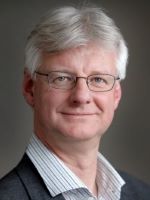HOW TO REPAIR THE IRREPARABLE: Strategies and challenges for victim reparations after violent conflict and serious human rights violations
Since the end of the Second World War, many violent conflicts worldwide have entailed serious human rights violations. They have also produced large numbers of victims and multiple forms of victimisation. Examples include the post WWII decolonial struggles of the 1960s, the authoritarian regimes of the 1970s and 1980s in several parts of the world, and 21st century recent (and current) wars such as in the DR Congo, Ethiopia, Yemen, and Ukraine.
While the prime attention for many decades was on the accountability of offenders, the last three decades have witnessed a decisive turn towards the victims of human rights violations and their rights and interests. Repairing the extensive harm inflicted upon victims has become a major concern of international law and international relations since the 1990s, as reflected in new legal frameworks and reparation schemes in international and domestic spheres. Some major issues include: what are the rights of victims to reparation under international law, what are victims’ needs and expectations in such contexts, how are their rights and needs effectuated in policy and practice, and what challenges arise in the course of this implementation? And the most crucial question of all: is it possible to repair the extensive harm to victims during and after serious human rights violations?
In this presentation, we focus on several key aspects that relate to victim reparations after violent conflict and serious human rights violations: (a) the current legal framework, (b) the voices of victims, (c) the implications for policy, and (d) the main challenges. For this purpose, we promote a multi-level and interdisciplinary approach. And we illustrate the main topics through various examples from across the globe.
Biography
Prof. dr. Stephan Parmentier studied law, political science and sociology at the universities of Ghent and Leuven (Belgium) and sociology and conflict resolution at the Humphrey Institute for Public Affairs, University of Minnesota-Twin Cities (U.S.A.). He currently teaches sociology of crime, law, and human rights at the Faculty of Law and Criminology of the University of Leuven, and coordinates the Research Line on Human Rights and Transitional Justice at the Leuven Institute of Criminology. He also serves as the Vice Dean for International Relations at the Faculty of Law and Criminology and a Member of the university-wide Ethical Commission on Dual Use, Military Use & Misuse of Research.
He is the Secretary-General of the International Society for Criminology (Paris) since 2010, an Advisory Board member of the International Centre for Transitional Justice (New York and Brussels) since 2014, and he was on the Advisory Board of the Oxford Centre of Criminology between 2010 and 2023. Several of his EU-funded multi-year exchange projects were selected as ‘good practices’ by the European Commission. In November 2017 he received the Award ‘Third Way’ from the Serbian Society of Victimology for his research on a non-conflict and comprehensive approach to dealing with war and war crimes.
All over the globe he has served as a visiting professor (Aix-Marseille, Oñati, San José, Sydney, Tilburg, Tokyo, Venice), visiting scholar (Buenos Aires, Harvard, Oxford, Stellenbosch, Sydney) and guest lecturer in the fields of human rights, justice and peace, criminology and socio-legal studies. Stephan Parmentier is the founding general editor of the first international book ‘Series on Transitional Justice’ (Intersentia Publishers, Cambridge/Antwerp) since 2007, and founding editor of ‘The International Journal of Restorative Justice’ (Eleven Publishing, The Hague) since 2013. He also serves as a referee to the ERC and COST funding schemes of the European Union, and several national and international research foundations. His research interests include political crimes and transitional justice, human rights and migration, and restorative justice and peacebuilding. He has conducted qualitative and quantitative fieldwork in Bosnia/Serbia, Central and Southern Africa, and Central and South America.
Website: https://www.law.kuleuven.be/apps/leden/public/index/view_profile/u0016825


